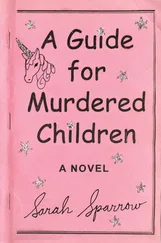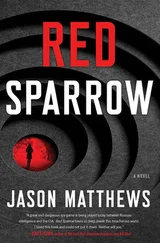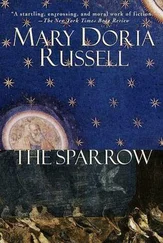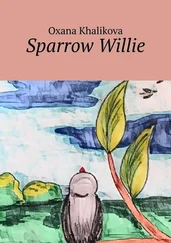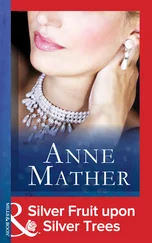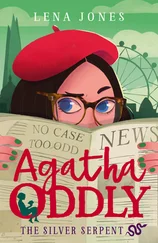Tayari Jones - Silver Sparrow
Здесь есть возможность читать онлайн «Tayari Jones - Silver Sparrow» весь текст электронной книги совершенно бесплатно (целиком полную версию без сокращений). В некоторых случаях можно слушать аудио, скачать через торрент в формате fb2 и присутствует краткое содержание. Жанр: Старинная литература, на английском языке. Описание произведения, (предисловие) а так же отзывы посетителей доступны на портале библиотеки ЛибКат.
- Название:Silver Sparrow
- Автор:
- Жанр:
- Год:неизвестен
- ISBN:нет данных
- Рейтинг книги:5 / 5. Голосов: 1
-
Избранное:Добавить в избранное
- Отзывы:
-
Ваша оценка:
- 100
- 1
- 2
- 3
- 4
- 5
Silver Sparrow: краткое содержание, описание и аннотация
Предлагаем к чтению аннотацию, описание, краткое содержание или предисловие (зависит от того, что написал сам автор книги «Silver Sparrow»). Если вы не нашли необходимую информацию о книге — напишите в комментариях, мы постараемся отыскать её.
Silver Sparrow — читать онлайн бесплатно полную книгу (весь текст) целиком
Ниже представлен текст книги, разбитый по страницам. Система сохранения места последней прочитанной страницы, позволяет с удобством читать онлайн бесплатно книгу «Silver Sparrow», без необходимости каждый раз заново искать на чём Вы остановились. Поставьте закладку, и сможете в любой момент перейти на страницу, на которой закончили чтение.
Интервал:
Закладка:
My mother spent the next week and a half expecting James Witherspoon to emerge at the top of the escalator. She agreed with Wil ie Mae, who pointed out that men do nothing without a reason. That compact was more expensive than the carving knife. If he spent more money on her than on his wife, he’d be back.
“Some men,” said Wil ie Mae, “would be back if al they bought you was a Peppermint Pattie. Money is for buying company, and they know it.”
(Lovely Wil ie Mae, whom I cal ed Auntie, stood up for my mother at her il egal wedding to my father, four months after I was born. She was my godmother, sweet to me when I was just a little girl. She died right after everything happened, shot to death by her boyfriend, a pretty man named Wil iam. I miss her very much.)
But Mother didn’t feel that James Witherspoon was trying to buy her. She thought that, for some reason, he just liked her. It was a nice idea, being liked. There was no harm in being liked by a married man. There was no harm in liking one back if al you did was like.
By the time a month had passed and he hadn’t returned, Mother regretted not having been more encouraging when he handed her the compact with its cha-cha wrapping, colored to look like a French bordel o. She was sorry for staring so long at his wedding ring, a simple gold band, etched with vines, and she felt sil y for wearing her own ring — just the band, as her ex-husband had taken back the stone; it belonged to his mother, and she couldn’t expect to take it with her. And she wondered, now, why she kept on wearing it.
She also wondered why she wasn’t able to care more about the important things happening in the world. There was the Vietnam War. She knew boys who had died, and there was always Dr. King, cold in the ground. Even though Wil ie Mae hadn’t been bitten by a dog, she had been in Birmingham when the German shepherds were let loose. And where had Mother been when al of this was going on? She was busy learning to be a wife.
AT THE END of the summer, she was at work, just where James had left her three months ago, when he final y came back for her. “I came to say hel o.”
“You did?” My mother felt ashamed to be grateful for such a smal gesture.
“Would you like to have coffee with me?”
She nodded.
“I’m m-married,” he said. “I’m m-m-married. Al I’m asking for is c-coffee. It’s a long story. My life is a long story.”
“Mine is, too.”
She agreed to meet him at the end of her workday. She petted the hair at her temples, which had kinked up with sweat. It was time for Wil ie Mae to see about her, so Mother bound her hair into an oily bun at the nape of her neck. She would spend the evening saying to him, “Please excuse the way I look.” And he would assure her that she looked fine. She liked that he said that she looked only fine and didn’t pretend that she was beautiful on this day. She liked the truth of that, and the truth came without insult. She was fine; she would do; it was enough.
My mother stood on the curb at Peachtree Street, where five roads came together, near the plastic shed where she was accustomed to catching the bus. Wil ie Mae, who typed for an insurance company, would already be onboard, sitting right behind the driver, because she was from Alabama and had walked to work al that year to support Mrs. Parks.
Mother didn’t recognize the limousine as her ride when it pul ed up to the curb beside her. She stood there, her eyes trained over the roof of the double-doored Cadil ac, looking for James. She wondered if maybe she shouldn’t cross the street, so he could more easily find her. She glanced at her watch as he emerged from the driver’s seat and tipped his hat.
“Oh,” she said. “It’s you.” She laughed. “I didn’t think—”
By now he had reached the backseat door and opened it. He smiled, but didn’t speak. Mother touched her dirty hair, smoothing the edges again.
She glanced up the road, looking to see her bus coming around the corner with Wil ie Mae perched on the first seat, but there was only the ordinary traffic of Studebakers, Packards, and other buses. She took a dainty step toward the open car door; the interior was velvet-looking, a warm tan, the color of peanut butter. She sat careful y on the seat and tugged at her skirt so that it lay smooth over her hips. “Thank you,” she said.
“Madame,” he said. Then he got into the driver’s seat and pul ed away.
My mother studied the back of his head, his orderly hairline made straight in a barber’s chair. Classical music crackled out of the speakers, the zip of the violins making her feel anxious.
“Would you like to go to Paschal’s?” he asked her.
“No,” she said. “I can’t go there. If it’s okay, I don’t want to go there.”
“It’s up to you,” he said.
The car was heavy with the scent of the solid perfume he had given her; if he recognized it, he didn’t say.
“Tel me about yourself,” he said.
“I don’t know,” Mother said. “I don’t know what to say.”
“You can say whatever you want.”
It was strangely comforting to talk to the back of his head like this. It was what she imagined talking to a priest would be like. Wil ie Mae went into the confessional every week. Mother was tempted to join her, but she didn’t want to have to pretend to be Catholic. She didn’t like to lie.
“I was born here in Atlanta. I used to be married, but I’m not married anymore.” He didn’t say anything, so she kept talking.
“I’m twenty years old. Did I tel you my name? It’s Gwendolyn, but people just cal me Gwen. Oh, I don’t know what else to say. I never knew my mother. And I didn’t march with Dr. King. I went to Spelman to see him lie in state, but the line was so long and I had to go to work. I live in a rooming house because I don’t have a lot of money.”
He kept driving, but my mother didn’t say anything else. She wanted to get out of the car. That would be the good thing about talking to a priest, how you said what you had to say and then you got to leave. But she was trapped here in this Cadil ac, getting sick from the smel of her own perfume. “I think I’m ready to go now.”
Without turning toward her, James said, “B-but we didn’t have coffee yet.”
“I don’t feel wel .”
“I know that I’m married,” James said. “I am not asking you to do anything that would make you feel low. I just want to have coffee with you. I have never b-b-been out for coffee or for dinner with a woman be-before.”
“Except your wife,” Mother said, regretting immediately the note of sarcasm in her voice. “It’s not my business. Sorry.”
“N-n-not even with her,” he said with a sadness that was palpable. “It’s a long story.”
“My life is a long story,” my mother said.
“Mine, too,” said my father.
Then they both chuckled that the conversation had come round again. She imagined it like a circle, a child’s bal , or even the whole world.
And this is how it started. Just with coffee and the exchange of their long stories. Love can be incremental. Predicaments, too. Coffee can start a life just as it can start a day. This was the meeting of two people who were destined to love from before they were born, from before they made choices that would complicate their lives. This love just rol ed toward my mother as though she were standing at the bottom of a steep hil . Mother had no hand in this, only heart.


3
NOTES ON PRECOCITY
Читать дальшеИнтервал:
Закладка:
Похожие книги на «Silver Sparrow»
Представляем Вашему вниманию похожие книги на «Silver Sparrow» списком для выбора. Мы отобрали схожую по названию и смыслу литературу в надежде предоставить читателям больше вариантов отыскать новые, интересные, ещё непрочитанные произведения.
Обсуждение, отзывы о книге «Silver Sparrow» и просто собственные мнения читателей. Оставьте ваши комментарии, напишите, что Вы думаете о произведении, его смысле или главных героях. Укажите что конкретно понравилось, а что нет, и почему Вы так считаете.

